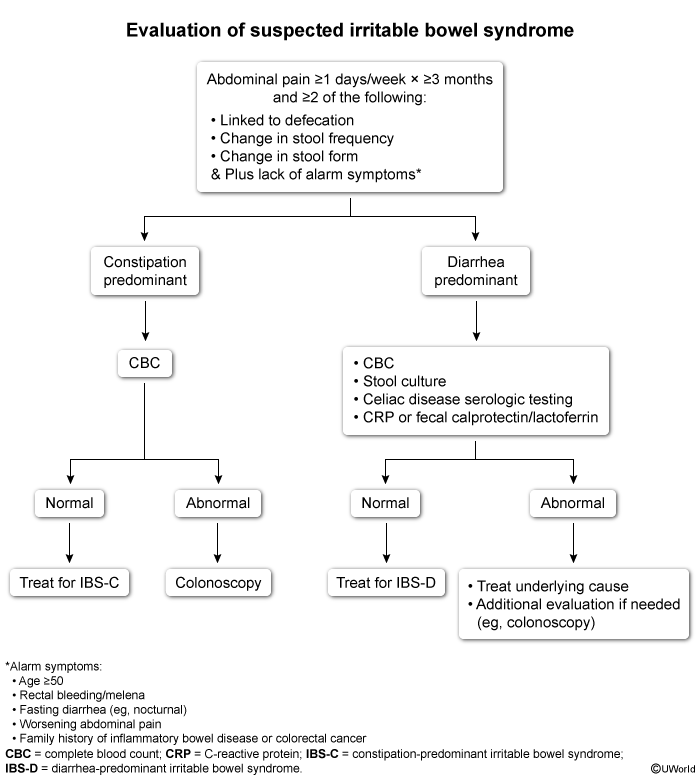Irritable Bowel Syndrome (IBS)
Article Sections
Introduction
Irritable bowel syndrome (IBS) is a common functional gastrointestinal disorder characterized by chronic abdominal pain associated with altered bowel habits.
Pathophysiology
The pathophysiology of IBS is not completely understood. Contributing factors include interactions between visceral hypersensitivity, altered gut motility, abnormal intestinal microbiota, immune dysregulation, and psychosocial factors. These mechanisms contribute to the various presentations seen in patients with IBS.
Risk factors
Several risk factors are associated with the development of IBS, including anxiety/depression, certain dietary patterns, and female sex. IBS can also develop following acute gastroenteritis (ie, postinfectious IBS).
Pathology
IBS is considered a functional disorder, implying the absence of structural, biochemical, or histologic abnormalities detectable by conventional diagnostic tests. However, microscopic inflammation, alterations in gut microbiota composition, and abnormal immune activation have been reported in subsets of IBS patients.
Continue Learning with UWorld
Get the full Irritable Bowel Syndrome (IBS) article plus rich visuals, real-world cases, and in-depth insights from medical experts, all available through the UWorld Medical Library.
Unlock Full AccessFigures
